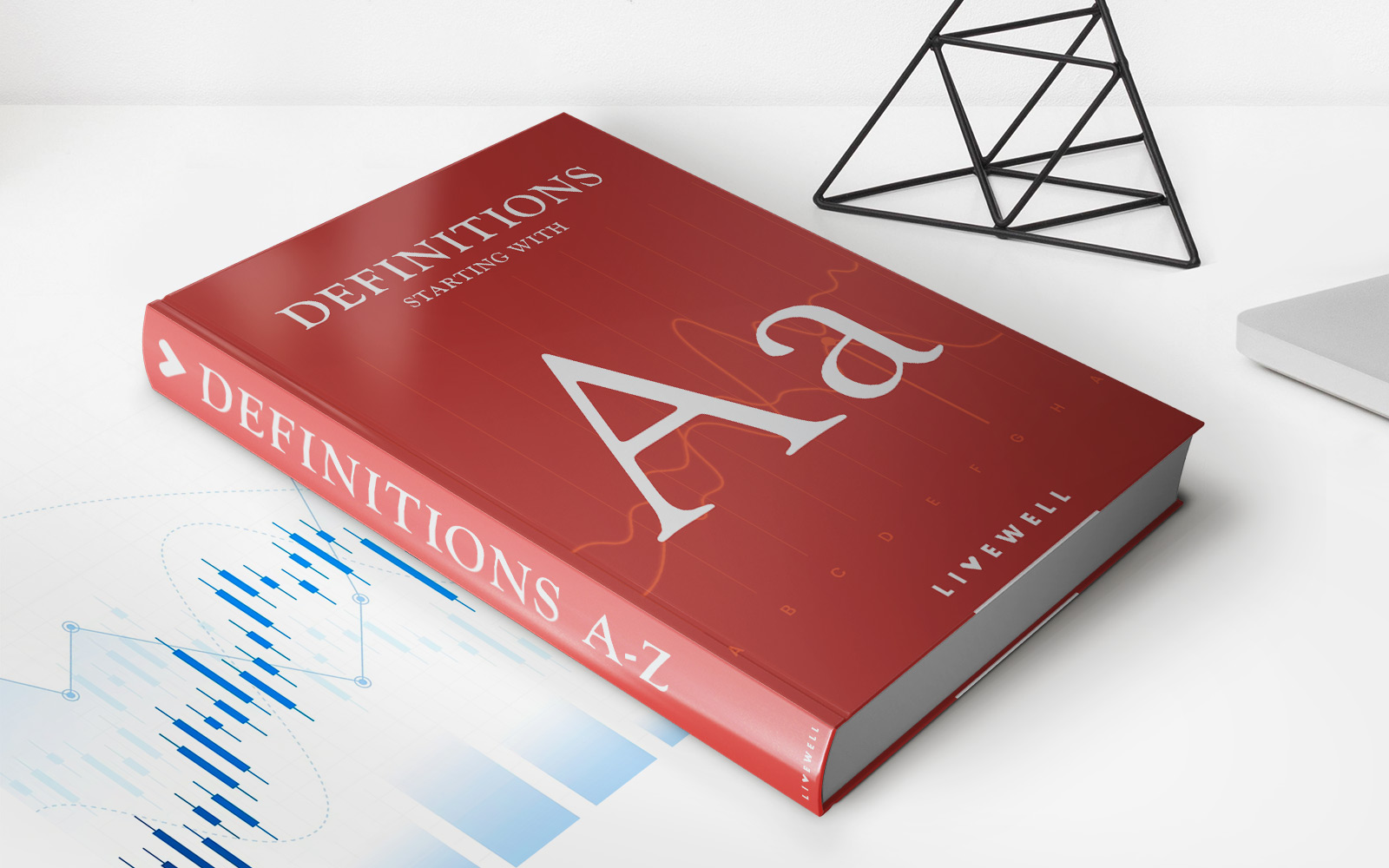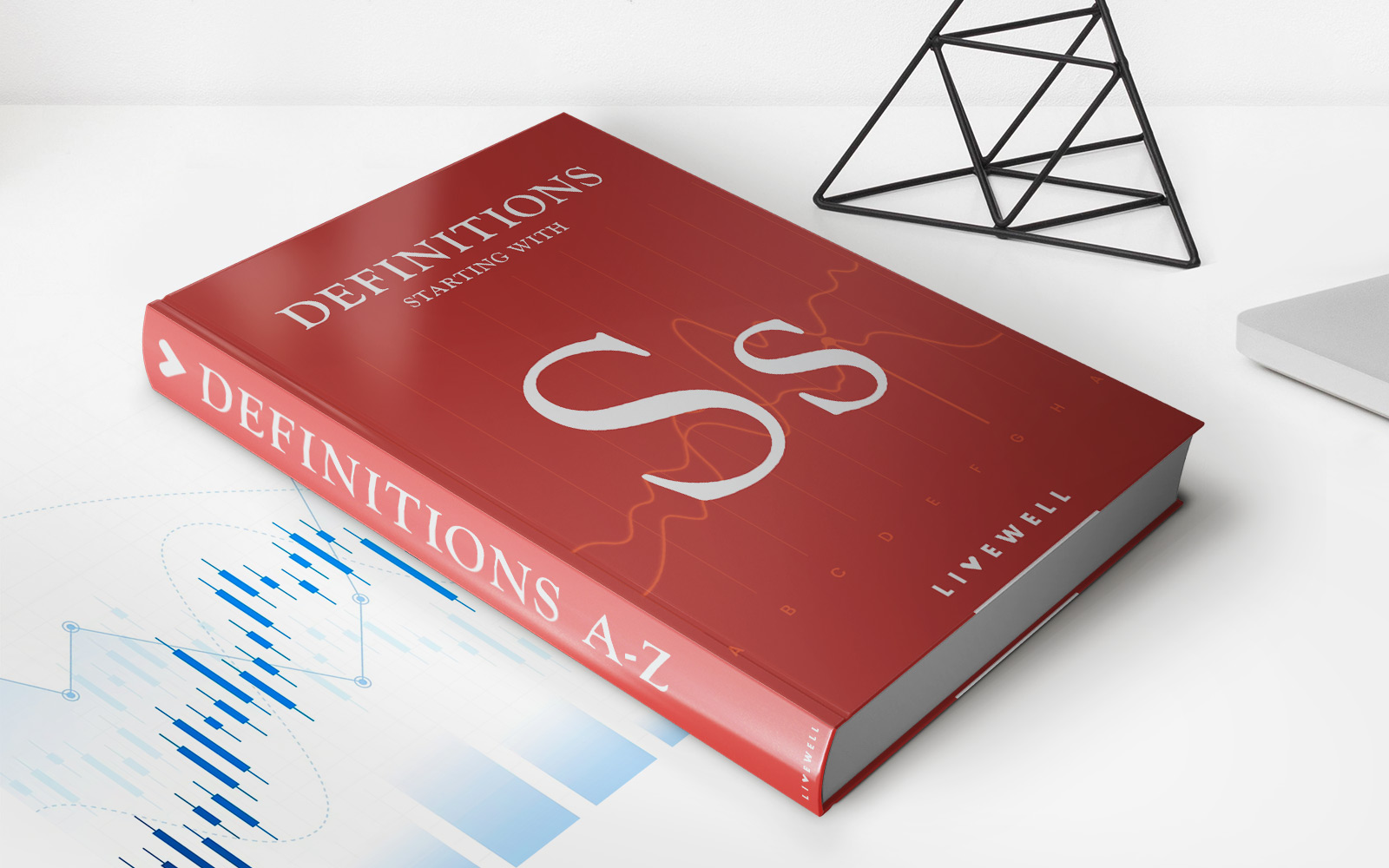

Finance
Why Do Employers Do A Credit Check
Published: January 12, 2024
Discover why employers conduct credit checks and how it relates to the finance industry. Gain insights into the importance of financial responsibility for job applicants.
(Many of the links in this article redirect to a specific reviewed product. Your purchase of these products through affiliate links helps to generate commission for LiveWell, at no extra cost. Learn more)
Table of Contents
- Introduction
- Understanding Credit Checks
- Reasons for Conducting Credit Checks
- Assessing Financial Responsibility
- Reducing Risk of Theft or Fraud
- Verifying Trustworthiness and Reliability
- Background Checks and Job Performance
- Legal Considerations and Fair Hiring Practices
- Limitations and Controversies Surrounding Credit Checks
- Conclusion
Introduction
When applying for a job, you might be surprised to learn that some employers conduct a credit check as part of their hiring process. This practice, though controversial, has become increasingly common in today’s job market. But why do employers do credit checks, and what do they hope to uncover?
A credit check involves reviewing an individual’s credit history, which includes information on their credit accounts, payment history, and any outstanding debts. Traditionally, credit checks were primarily used by lenders to assess an individual’s creditworthiness when applying for a loan or credit card. However, employers have started to recognize the potential value of this information in evaluating job applicants.
It is essential to understand that credit checks should not be considered a measure of someone’s character or personal worth. Instead, employers utilize credit checks to assess an applicant’s financial responsibility, integrity, and potential risk factors that could impact their job performance or the company’s overall stability.
In this article, we will explore the reasons behind employers conducting credit checks and the various factors they evaluate during the process. We will also consider the legal considerations and controversies surrounding this practice, as well as its limitations and implications for fair hiring practices.
Understanding Credit Checks
Before we delve into the reasons why employers conduct credit checks, it’s important to first understand what a credit check entails. A credit check involves obtaining a copy of an applicant’s credit report from one or more of the major credit reporting agencies, such as Equifax, Experian, or TransUnion.
A credit report provides a comprehensive overview of an individual’s credit history and financial behavior. It includes information on credit accounts, such as credit cards, loans, mortgages, and personal lines of credit, as well as details on payment history, outstanding debts, and any public records like bankruptcies or liens.
Employers conducting a credit check will typically request permission from the applicant to access their credit report. This requires the applicant to provide consent, either through a signed authorization form or as part of the initial job application.
It’s important to note that a credit check does not provide information about an individual’s income, assets, or overall net worth. It solely focuses on their credit history and how responsibly they have managed their financial obligations.
It’s worth mentioning that credit checks are subject to regulations, such as the Fair Credit Reporting Act (FCRA), which outlines the rules and guidelines that employers must follow when obtaining an applicant’s credit report. This includes notifying the applicant if adverse action is taken based on the credit check and providing them with an opportunity to dispute any inaccurate or incomplete information.
Reasons for Conducting Credit Checks
There are several reasons why employers choose to conduct credit checks during the hiring process. While not all employers utilize this practice, those who do often have specific motivations for doing so. Let’s explore some of the main reasons for conducting credit checks:
- Assessing Financial Responsibility: Employers may use credit checks as a way to evaluate an individual’s financial responsibility. They believe that someone who manages their personal finances well is more likely to be responsible in their professional life. This can be especially important for positions that involve handling company finances or sensitive financial information.
- Reducing Risk of Theft or Fraud: By reviewing an applicant’s credit history, employers can identify any financial difficulties or patterns of irresponsible behavior that could potentially make them more susceptible to financial stress or even engage in illegal activity, such as theft or fraud. This is particularly relevant for roles that handle cash or have access to sensitive customer data.
- Verifying Trustworthiness and Reliability: Credit checks can provide insight into an applicant’s level of trustworthiness and reliability. Employers may view a solid credit history as an indication that an individual takes their financial commitments seriously and is likely to exhibit similar traits in their professional obligations.
- Background Checks and Job Performance: Employers may see credit checks as just one component of a comprehensive background check. By examining an applicant’s credit history, they can supplement other checks, such as criminal records or employment verification, to gain a more complete picture of the candidate’s overall suitability for the role.
It’s important to note that the use of credit checks in the hiring process is not without controversy. Critics argue that credit checks can be discriminatory and disproportionately impact certain groups, such as those with lower incomes or individuals who have experienced financial hardships. To address these concerns, some jurisdictions have implemented legislation to regulate the use of credit checks or prohibit them altogether, except for positions that are directly related to financial or fiduciary responsibilities.
Now that we have explored the reasons why employers conduct credit checks, let’s delve deeper into how they assess an applicant’s financial responsibility and other relevant factors.
Assessing Financial Responsibility
One of the primary reasons employers conduct credit checks is to assess an applicant’s financial responsibility. They believe that an individual’s credit history can provide valuable insights into how they manage their personal finances and make decisions related to money. Here are some key factors that employers may consider when assessing financial responsibility:
- Credit Score: Employers often look at an applicant’s credit score as a quick indicator of their overall creditworthiness. A higher credit score suggests a history of timely payments and responsible credit management, while a lower credit score may raise concerns about potential financial irresponsibility.
- Payment History: Employers may closely examine an applicant’s payment history to see if they consistently make payments on time. Regular late payments or a history of missed payments could indicate a lack of financial responsibility and discipline.
- Debt Levels: High levels of debt, especially when compared to income, can raise concerns about an individual’s ability to manage their financial obligations. Employers may evaluate an applicant’s debt-to-income ratio to assess their ability to handle financial responsibilities and avoid being overwhelmed by debt.
- Bankruptcy or Foreclosure: Instances of bankruptcy or foreclosure in an applicant’s credit history may indicate significant financial difficulties in the past. Employers may consider these events as red flags, suggesting potential financial instability and an increased risk of future financial challenges.
- Collections or Delinquencies: Evidence of collection accounts or delinquencies can raise concerns about an applicant’s reliability and ability to fulfill financial obligations. Employers may view these instances as indicators of potential irresponsibility or an inability to manage financial commitments.
It’s important to note that employers typically do not make hiring decisions based solely on an applicant’s credit check. Instead, they consider the overall context and take a holistic view of the candidate, considering factors such as qualifications, experience, and interview assessments alongside the information provided in the credit report.
While assessing an applicant’s financial responsibility can be a valuable tool for employers, it’s crucial to use credit checks responsibly and consider other relevant factors. Additionally, it’s essential to have clear policies in place to ensure that the use of credit checks does not unfairly disadvantage certain individuals or perpetuate systemic biases.
Now that we have explored how employers assess financial responsibility through credit checks, let’s continue examining the reasons behind this practice by exploring the risk of theft or fraud.
Reducing Risk of Theft or Fraud
Another significant reason why employers conduct credit checks is to reduce the risk of theft or fraud within their organization. By reviewing an applicant’s credit history, employers can gain insights into their financial behavior and potentially identify risk factors that could make them more susceptible to engaging in illicit activities. Here’s how credit checks can help in reducing the risk of theft or fraud:
- Financial Stress as a Motivating Factor: Individuals who are facing severe financial difficulties or overwhelming debt may be at a higher risk of engaging in fraudulent activities. Desperation to alleviate their financial burden may cause them to resort to unethical behavior, including theft or fraud, to meet their financial obligations.
- Patterns of Irresponsible Financial Behavior: Credit checks can reveal patterns of irresponsible financial behavior, such as excessive spending, multiple accounts in collections, or frequent delinquencies. Employers may view these indicators as signs of potential impulsivity or a lack of integrity, raising concerns about the individual’s trustworthiness when it comes to handling company finances or sensitive customer information.
- Discrepancies between Lifestyle and Income: By examining an applicant’s credit history, employers can identify any significant disparities between their reported income and their lifestyle choices. If an individual appears to be living a lavish lifestyle that exceeds their reported earnings, it may raise suspicions and prompt further investigation to ensure the absence of fraudulent activities.
- Financial Stability as an Indicator: Employers may consider financial stability as an essential factor in reducing the risk of theft or fraud. Individuals who demonstrate consistent financial responsibility and stability are perceived to have a lower likelihood of engaging in dishonest activities, as they are less likely to be driven by financial desperation.
It’s important to note that credit checks alone cannot guarantee that an individual will not engage in theft or fraud. However, they can serve as an additional piece of information for employers to consider when making hiring decisions, especially for positions that involve handling finances, sensitive customer data, or other assets of value.
While the use of credit checks to reduce the risk of theft or fraud is a valid concern for employers, it is crucial to use this practice responsibly and ensure that it aligns with legal requirements and fairness considerations. In the next section, we will delve into how credit checks help employers verify trustworthiness and reliability in job applicants.
Verifying Trustworthiness and Reliability
Employers often conduct credit checks as a means of verifying the trustworthiness and reliability of job applicants. By assessing an individual’s credit history, they aim to gain insights into their financial decision-making, responsible behavior, and overall character. Here are some key reasons why employers use credit checks to verify trustworthiness and reliability:
- Paying Attention to Financial Commitments: Employers believe that how an individual manages their financial commitments and obligations can be an indication of their ability to handle professional responsibilities. Good financial habits, such as regular and timely bill payments, reflect discipline, reliability, and attention to detail – qualities that employers often seek in potential hires.
- Showcasing Responsibility: Consistent management of credit accounts and a positive credit history can demonstrate an individual’s responsibility in handling financial matters. Employers may view this as evidence that the applicant will similarly approach their work-related tasks with diligence and conscientiousness.
- Demonstrating Integrity: Employers believe that an individual who maintains a strong credit history and handles their financial obligations appropriately demonstrates a level of integrity and honesty. This perception is based on the belief that responsible financial behavior reflects an individual’s commitment to fulfilling their obligations, both personally and professionally.
- Building Strong Relationships: Trustworthiness and reliability are crucial traits in developing strong relationships with colleagues, clients, and other stakeholders. Employers may use credit checks to evaluate an applicant’s financial responsibility as an indicator of their potential to cultivate dependable and trustworthy relationships within the workplace.
It’s worth noting that credit checks should not be the sole determining factor in assessing an individual’s trustworthiness and reliability. Employers should consider the overall context, including the applicant’s qualifications, experience, references, and interview performance, to form a comprehensive evaluation.
While credit checks can provide some insights into an applicant’s character, it’s important to acknowledge that there are limitations to this approach. Personal financial circumstances can be influenced by various factors, including unforeseen crises, medical expenses, or unemployment, which may not accurately reflect an individual’s trustworthiness or reliability in a professional setting.
Therefore, employers must use credit checks as one tool in a broader assessment process, while ensuring that fairness and legal requirements are upheld. In the following sections, we will discuss the role of background checks in relation to job performance and examine the legal considerations surrounding credit checks in hiring practices.
Background Checks and Job Performance
Employers often view credit checks as part of a comprehensive background check process. While credit checks focus on an individual’s financial history, other components of a background check examine an applicant’s employment history, education, criminal records, and other relevant information. These checks help employers evaluate a candidate’s suitability for a particular role and assess their potential job performance. Here’s how background checks relate to job performance:
- Verification of Qualifications: Background checks allow employers to verify an applicant’s educational credentials, work experience, and professional certifications. By confirming these qualifications, employers gain confidence in the candidate’s ability to perform the required job tasks and contribute effectively to the organization.
- Past Performance and References: Employers may contact previous employers or references provided by the applicant as part of the background check process. These conversations can provide valuable insights into the candidate’s past job performance, work ethic, skills, and dependability. Positive feedback can increase an employer’s confidence in the candidate’s potential job performance.
- Predicting Reliability and Accountability: Reviewing an applicant’s background, including their credit history, criminal records, and overall reputation, can help employers gauge the candidate’s reliability and accountability in their personal and professional life. This information can be used to assess whether the applicant is likely to exhibit responsible behavior and adhere to company policies and procedures.
- Cultural Fit and Work Environment: Background checks can also provide employers with insights into whether an applicant is likely to thrive and integrate well within the company’s work environment. Evaluating an applicant’s background can help employers determine if they possess the necessary values, skills, and experiences that align with the company’s culture and mission.
It’s important to note that background checks should be conducted in a fair and lawful manner. Employers must comply with applicable local, state, and federal laws regarding privacy, discrimination, and the use of personal information. It’s crucial to strike a balance between gathering relevant information to assess job performance and respecting an individual’s privacy rights.
While background checks offer valuable insights, it’s important to remember that past behavior does not always predict future performance. Employers should consider various factors when evaluating an applicant, such as their potential for growth, adaptability, and alignment with the company’s goals and values.
As we move forward, we will explore the legal considerations and fair hiring practices associated with credit checks in the hiring process.
Legal Considerations and Fair Hiring Practices
When it comes to conducting credit checks as part of the hiring process, employers need to be mindful of legal considerations and adhere to fair hiring practices. While credit checks can provide valuable information, their use must comply with applicable laws and regulations. Here are some key points to consider:
- Legal Requirements: Employers must familiarize themselves with the legal requirements governing credit checks in their jurisdiction. Laws such as the Fair Credit Reporting Act (FCRA) in the United States and similar regulations in other countries govern the collection, use, and disclosure of credit information. Compliance with these laws is essential to protect the rights of job applicants and ensure fairness in the hiring process.
- Relevance of Credit Checks: Employers should carefully assess whether a credit check is truly necessary and relevant for the specific role being filled. Credit checks should be limited to positions where financial responsibilities or access to sensitive financial information is involved. Employers should avoid using credit checks for positions where it has no bearing on job performance or suitability.
- Consent and Disclosure: Employers must obtain explicit consent from job applicants before conducting a credit check. Applicants must be informed of their rights and provided with clear and concise disclosures regarding the nature and purpose of the credit check. Any adverse action taken based on the information obtained from the credit check should be communicated to the applicant, along with the opportunity to dispute any inaccuracies.
- Avoiding Discrimination: Employers need to ensure that their use of credit checks does not result in discrimination or the disparate impact of certain groups. It is crucial to consider whether credit history is a truly valid and job-related criterion and whether alternative methods of evaluating an applicant’s suitability can be employed to achieve the same objectives without potential bias.
- Individual Circumstances: Employers should take into account the individual circumstances of job applicants when evaluating their credit history. Financial hardships, medical emergencies, or other life events may have impacted an individual’s credit in the past. It is important to consider these circumstances and look for patterns of responsibility and recovery rather than focusing solely on negative aspects.
By adhering to legal requirements and incorporating fair hiring practices, employers can ensure that credit checks are used responsibly and do not unfairly disadvantage applicants. It is crucial to balance the need for relevant information with respect for privacy and the promotion of equal opportunity in the hiring process.
As we conclude this article, we can reflect on the limitations and controversies surrounding credit checks, while acknowledging their potential value when used appropriately and ethically in the hiring process.
Limitations and Controversies Surrounding Credit Checks
While credit checks can provide insight into an applicant’s financial responsibility, there are limitations and controversies associated with their use in the hiring process. It’s important for employers to be aware of these considerations. Here are some key points to understand:
- Financial Hardships and Extenuating Circumstances: Credit checks do not provide a comprehensive picture of an individual’s character or suitability for a job. They may not take into account extenuating circumstances, such as unexpected medical expenses or job loss, that may have impacted an individual’s credit history. Subjecting applicants to credit checks without considering their unique circumstances can be unfair and discriminatory.
- Disproportionate Impact on Marginalized Groups: Critics argue that credit checks disproportionately impact individuals from marginalized communities. Lower-income individuals, people of color, and those who have faced financial hardships may be more likely to have lower credit scores and negative credit histories. Using credit checks as a criterion for employment can perpetuate systemic biases and limit opportunities for those already facing systemic disadvantages.
- Poor Correlation with Job Performance: It is important to acknowledge that credit checks may not have a strong correlation with an individual’s job performance. Studies have shown that credit history does not reliably predict work ethic, job satisfaction, or trustworthiness in the workplace. Relying heavily on credit checks as a determinant of suitability for a job can overlook other crucial qualifications and abilities that an applicant may possess.
- Privacy Concerns: Conducting credit checks involves accessing sensitive personal financial information. Care must be taken to protect the confidentiality and privacy of this information. Employers must ensure that proper security measures are in place to safeguard data and comply with relevant privacy regulations.
- Alternative Evaluation Methods: Employers are encouraged to explore alternative methods to evaluate an applicant’s suitability for a job that do not rely solely on credit checks. These methods may include assessing relevant skills, conducting thorough interviews, and seeking recommendations from previous employers. Utilizing a range of evaluation tools can provide a more comprehensive and equitable assessment of an applicant’s qualifications.
Considering the limitations and controversies surrounding credit checks, employers should carefully evaluate their necessity and relevance for each job position. They should also be mindful of legal requirements and fairness considerations to ensure they are not inadvertently perpetuating biases or excluding qualified candidates based on credit history alone.
As we conclude this article, it is important for employers to thoughtfully consider the use of credit checks and balance their desire to assess financial responsibility with fairness, privacy, and equal opportunity in the hiring process.
Conclusion
Credit checks have become a common practice in the hiring process for many employers. While controversial, they serve as a means to assess an individual’s financial responsibility, reduce the risk of theft or fraud, and verify trustworthiness and reliability. However, it’s essential to recognize the limitations and controversies surrounding the use of credit checks.
Employers must approach credit checks with caution and ensure they comply with legal requirements and fair hiring practices. They should consider the relevance of credit checks to the specific job role and be mindful of potential discrimination or disparate impact on marginalized groups.
Additionally, employers should be aware of the limitations of credit checks. Financial hardships and extenuating circumstances can impact credit histories, and credit checks may not have a strong correlation with job performance. It is crucial to consider alternative evaluation methods and take into account the individual circumstances and qualifications of applicants.
Privacy concerns should also be addressed, with employers taking necessary precautions to protect personal financial information obtained through credit checks.
While credit checks can provide valuable insights, they should be used responsibly, in conjunction with other assessment methods, and as one factor among many in the hiring process. Employers should strive for a comprehensive evaluation that considers qualifications, experience, references, and interviews, while being mindful of fairness and equal opportunity.
By understanding the reasons for conducting credit checks, as well as the legal considerations, limitations, and controversies surrounding them, employers can make informed decisions and strike the right balance between assessing an applicant’s financial responsibility and ensuring fair and equitable hiring practices.














